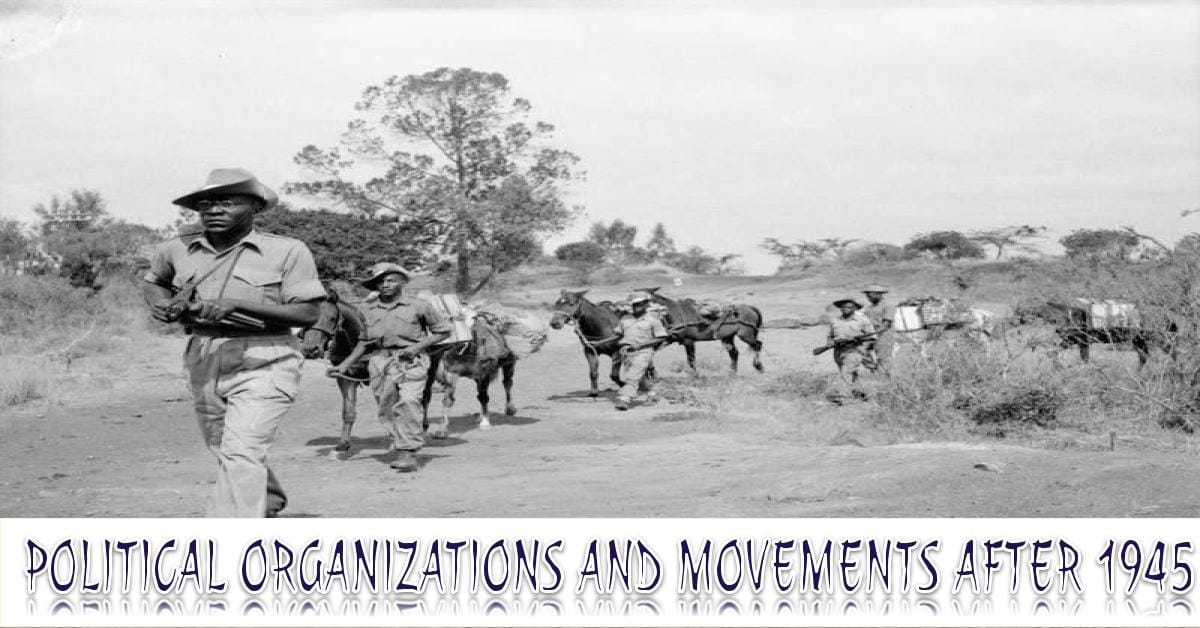🇰🇪 Kenya African Democratic Union (KADU) 🇰🇪
Safeguarding Minority Interests in Kenya’s Independence Struggle
1 📌 Introduction to KADU
The Kenya African Democratic Union (KADU) was formed in 1960 as an alliance of minority ethnic political groups. Its primary mission was to protect the rights and interests of minority groups against possible domination by the larger Kenya African National Union (KANU) and majority ethnic groups.
Minority Alliance
Coalition of smaller ethnic groups
Protection Focus
Advocated for minority rights
Federal System
Promoted Majimboism (regionalism)
2 👥 Key Leadership
Ronald Ngala
President
Coast Province leader
Masinde Muliro
Vice President
Luhya community leader
Daniel Arp Moi
Chairman
Kalenjin leader
Martin Shikuku
Secretary General
Luhya community leader
Justus ole Tipis
Treasurer
Maasai community leader
3 🏛️ Governance Philosophy
KADU’s Position
Advocated for a federal system (Majimboism) to protect regional interests and prevent domination by larger ethnic groups
KANU’s Position
Advocated for a unitary system of government with strong central control to promote national unity
📊 System Comparison
Federal System (Majimbo)
- Regional autonomy
- Power distribution
- Minority protection
Unitary System
- Centralized power
- Uniform policies
- National unity focus
4 📅 Historical Timeline
1960 Formation of KADU
KADU formed as an alliance of minority ethnic political groups including Kalenjin, Maasai, and coastal communities to protect minority interests.
1961 First Coalition Government
Formed first coalition government with Europeans and Asians after garnering 11 seats in elections.
1962 Coalition with KANU
Formed coalition government with KANU while awaiting 1963 elections.
1963 Election Defeat
Defeated by KANU in elections, became major opposition party.
1964 Disbandment
Disbanded after persuasions from Jomo Kenyatta, with many members joining KANU.
5 ⭐ Roles in Independence Struggle
United Minorities
United smaller communities in Kenya (Kalenjin, Luhyia, Maasai, coastal communities) to advocate for their collective interests.
Mobilized Africans
Educated and mobilized Africans against colonial domination and for self-governance.
Kenyatta Release
Pressed for the release of Jomo Kenyatta while hoping he would join their side in advocating for federalism.
Constitution Drafting
Participated in drawing up the independence constitution at the second Lancaster House conference.
Government Checks
As an opposition party, helped provide checks on the KANU government in the early independence period.
6 ⚠️ Challenges Faced
Internal Suspicion
Suspicions of dominance by some communities within the party undermined unity.
Financial Constraints
Lack of adequate funds for countrywide campaigns limited their reach.
Internal Wrangles
Conflicts between senior officials undermined party operations and cohesion.
Illiteracy Issues
High illiteracy among members left leaders with excessive responsibility.
Colonial Manipulation
Prone to manipulation by colonial authorities who favored divided African opposition.
Member Defection
Faced pressure from KANU for members to decamp and join the majority party.
! 📚 Historical Significance
Though short-lived, KADU played a crucial role in ensuring minority voices were heard during Kenya’s transition to independence. Their advocacy for federalism influenced the debate around devolution of power that continues to shape Kenyan politics today through the current system of county governments.
Voice for Minorities
Federalism Debate
Constitutional Impact
Enhanced by Manyam Franchise
Self-Assessment Questions
📝 KADU History Knowledge Test
Test your knowledge of Kenya’s independence history
📋 Instructions
This test contains 10 multiple-choice questions about the Kenya African Democratic Union (KADU).
- Select the best answer for each question
- Answer all questions before submitting
- Your score will be calculated based on CBC competencies
- You’ll receive detailed feedback at the end
© 2023 Kenya History Educational Resource | CBC-Aligned Assessment
